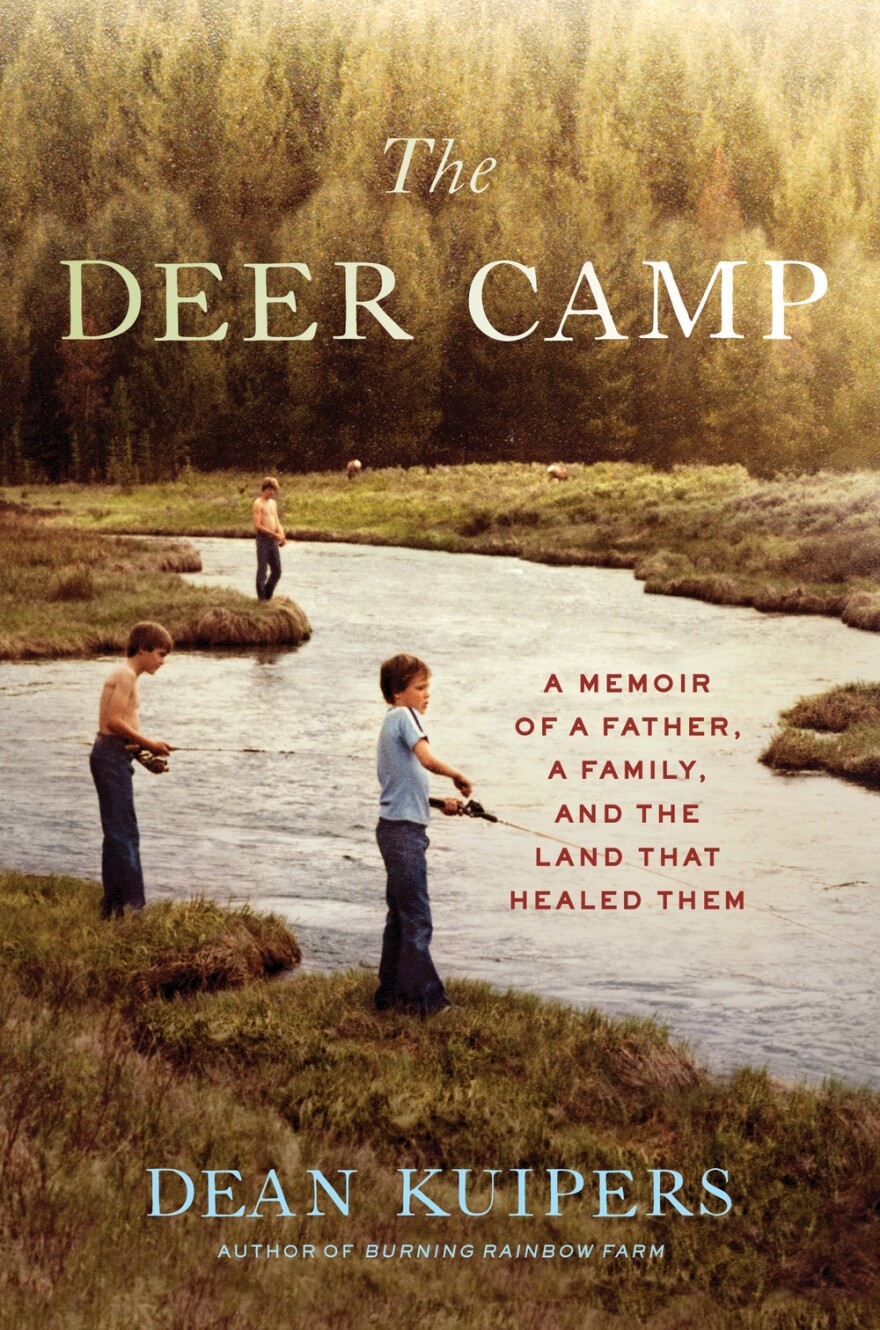Author and journalist Dean Kuipers says place can change us. It is us, he says, and when we neglect or destroy the natural world around us, we abuse ourselves as well as nature.
Kuipers, a graduate of Kalamazoo College, now lives in Los Angeles. But he still thinks of Michigan as home. He writes about the impact of place on his family and himself in his memoir, The Deer Camp: A Memoir of a Father, a Family, and the Land that Healed Them (Bloomsbury, May 2019).
“Everything in this book is stuff that really happened,” Kuipers says. “The book is about a camp, a hunting property in Michigan, and it becomes a character in the book. I wrote the book because of the profound effect that place had on my family. It gave my brothers and me a father again that we hadn’t ever really had.”
Kuipers tells the story of his father, Bruce Kuipers, an angry, detached, serial cheater on his wife Nancy, who managed to alienate his three sons as they grew up. After the boys are grown, Bruce Kuipers buys a 100-acre plot of land, hoping to reconnect with his sons, who resist his overtures.

Kuipers says writing the memoir, “was extraordinarily hard. I have written several other books, several of them about Michigan subjects. And because they weren’t about my family, maybe they took me a year to write. I just could not get my head around this one. I started in 2013 and it took me five years.”
Kuipers says there’s also a theme of eco-psychology running through the book. When he first started writing, he found himself clinging to that rather than digging deep into family history. It was less intimidating, less overwhelming.
“I was avoiding the story,” he says. “My editor would read it, my agent would read it, and my wife would read it, and say, umm, you’re avoiding something!”
Once he confront that avoidance, a rich story about three brothers evolved, each facing up to their own conflicts; a mother who struggled with betrayal until she finally divorced her cheating husband; and a father who finally looked his shortcomings in the eye. A life metaphor surfaces as his sons finally take up the challenge of renewing the overgrown, sandy land their father bought and give it new life. As the land begins to thrive, so do their relationships. As they heal the neglected land, the land in turn heals them.
Dean Kuipers is best known for his writing on the environment. His book, Burning Rainbow Farm, was selected as a 2007 Michigan Notable Book. His other work includes Operation Bite Back, a non-fiction book about activist Rod Coronado and the use of domestic terrorism charges against environmentalists. Kuipers was born in the Seattle area but grew up in rural southwestern Michigan. He earned a degree in English from Kalamazoo College in 1987.
Listen to WMUK's Art Beat every Friday at 7:50 a.m. and 4:20 p.m.
You can stay in touch with WMUK news on Facebook, Twitter, and by signing up for our eNewsletter.






